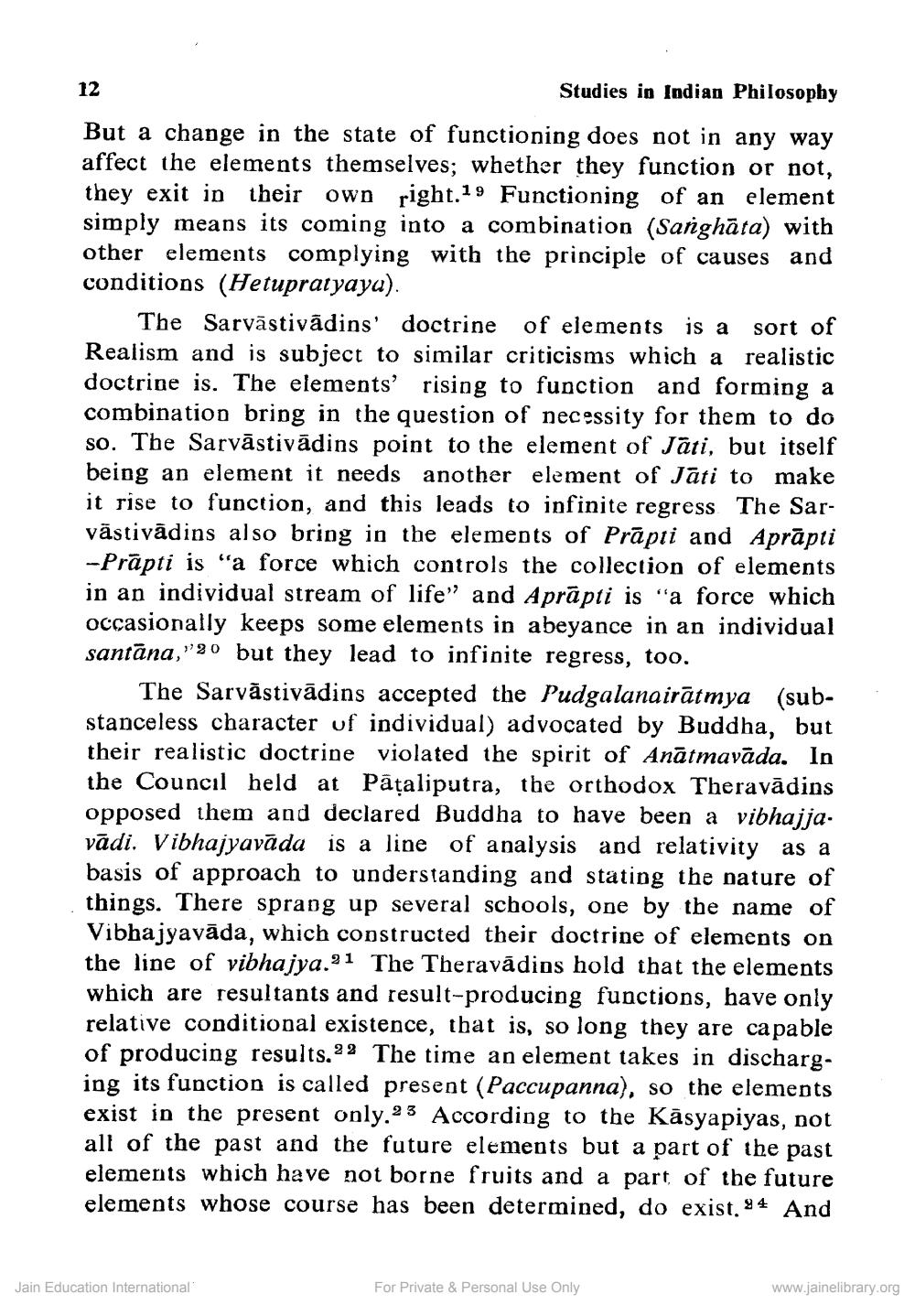________________
112
Studies in Indian Philosophy
But a change in the state of functioning does not in any way affect the elements themselves; whether they function or not, they exit in their own right.19 Functioning of an element simply means its coming into a combination (Sanghāta) with other elements complying with the principle of causes and conditions (Hetupratyayu).
The Sarvāstivādins' doctrine of elements is a sort of Realism and is subject to similar criticisms which a realistic doctrine is. The elements rising to function and forming a combination bring in the question of necessity for them to do so. The Sarvāstivādins point to the element of Jāti, but itself being an element it needs another element of Jāti to make it rise to function, and this leads to infinite regress The Sarvāstivādins also bring in the elements of Prāpti and Aprāpti -Prāpti is "a force which controls the collection of elements in an individual stream of life" and Aprāpti is "a force which occasionally keeps some elements in abeyance in an individual santāna,"20 but they lead to infinite regress, too.
The Sarvăstivādins accepted the Pudgalanairātmya (substanceless character of individual) advocated by Buddha, but their realistic doctrine violated the spirit of Anātmavāda. In the Council held at Pāțaliputra, the orthodox Theravādins opposed them and declared Buddha to have been a vibhajja. vādi. Vibhajyavāda is a line of analysis and relativity as a basis of approach to understanding and stating the nature of things. There sprang up several schools, one by the name of Vibhajyavāda, which constructed their doctrine of elements on the line of vibhajya.21 The Theravādins hold that the elements which are resultants and result-producing functions, have only relative conditional existence, that is, so long they are capable of producing results.22 The time an element takes in discharg. ing its function is called present (Paccupanna), so the elements exist in the present only. 23 According to the Kāsyapiyas, not all of the past and the future elements but a part of the past elements which have not borne fruits and a part of the future elements whose course has been determined, do exist. 94 And
Jain Education International
For Private & Personal Use Only
www.jainelibrary.org




